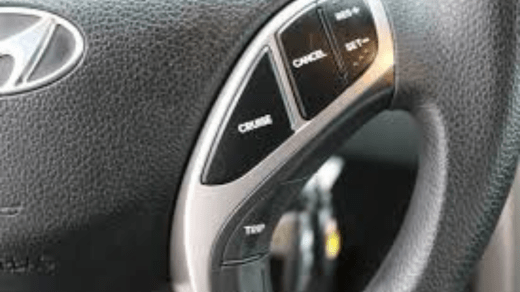1. TPMS
TPMS, or Tire Pressure Monitoring System, is a vital feature in modern vehicles like the Hyundai Elantra, ensuring optimal tire pressure for safety and performance.
2. Importance of TPMS Reset
Resetting the TPMS is necessary after tire maintenance or replacement to ensure accurate monitoring of tire pressure.
3. Understanding the Hyundai Elantra
The Hyundai Elantra is a popular sedan known for its advanced features, including a user-friendly TPMS reset system.
4. Locating the TPMS Reset Button
In the Hyundai Elantra, the TPMS reset button is typically located near the steering wheel or dashboard area for easy access.
5. Dashboard Placement
Check the lower part of the dashboard, usually near the driver’s side, for a small button labeled “TPMS Reset” or a similar designation.
6. Steering Wheel Controls
Some Hyundai Elantra models may feature TPMS reset controls integrated into the steering wheel, allowing for convenient access while driving.
7. Owner’s Manual Guidance
Consult the Hyundai Elantra owner’s manual for specific instructions and illustrations regarding the location of the TPMS reset button.
8. Visual Inspection
Perform a visual inspection of the dashboard and steering wheel area to identify any buttons or controls labeled for TPMS reset functionality.
9. Electronic Display
In newer Hyundai Elantra models, the TPMS reset button may be accessible through the vehicle’s electronic display interface.
10. Consultation with Service Technician
If unable to locate the TPMS reset button, seek assistance from a Hyundai dealership or certified service technician for guidance.
11. Safety Precautions
Exercise caution when accessing and using the TPMS reset button to avoid accidental activation or interference with other vehicle controls.
12. Functionality Confirmation
After locating the TPMS reset button, ensure that the vehicle is parked safely with the engine running before proceeding with the reset process.
13. Press and Hold Procedure
Typically, the TPMS reset button requires pressing and holding for several seconds to initiate the reset procedure in the Hyundai Elantra.
14. System Confirmation
Upon successful reset, the TPMS system in the Hyundai Elantra may display a confirmation message or indicator light on the instrument cluster.
15. Tire Pressure Verification
Following the TPMS reset, manually check the tire pressure using a tire pressure gauge to confirm proper inflation.
16. Regular Maintenance
Incorporate TPMS reset as part of routine maintenance for the Hyundai Elantra to ensure accurate tire pressure monitoring and optimal driving performance.
17. Frequency of Reset
Resetting the TPMS in the Hyundai Elantra may be necessary after tire rotations, replacements, or significant changes in temperature or driving conditions.
18. DIY Reset Procedure
For experienced owners, the TPMS reset process in the Hyundai Elantra can be performed independently following proper guidelines and precautions.
19. Importance of Proper Tire Pressure
Maintaining proper tire pressure not only enhances vehicle safety and performance but also extends tire lifespan and fuel efficiency.
20. Environmental Impact
Optimal tire pressure reduces tire wear and minimizes fuel consumption, contributing to eco-friendly driving practices in the Hyundai Elantra.
21. Road Safety
Properly inflated tires enhance traction, stability, and braking performance, promoting safer driving experiences for Hyundai Elantra owners.
22. Tire Pressure Monitoring
The TPMS in the Hyundai Elantra continuously monitors tire pressure, alerting drivers to potential issues and ensuring timely maintenance.
23. Tire Pressure Alerts
In the event of low tire pressure, the TPMS in the Hyundai Elantra notifies drivers through dashboard alerts or warning lights, prompting immediate action.
24. Vehicle Performance Optimization
Maintaining optimal tire pressure through regular TPMS reset contributes to overall vehicle performance and longevity of critical components.
The TPMS reset button in the Hyundai Elantra plays a crucial role in ensuring accurate tire pressure monitoring and promoting safe, efficient driving experiences for owners. Familiarize yourself with its location and functionality to maintain optimal performance and safety on the road.


